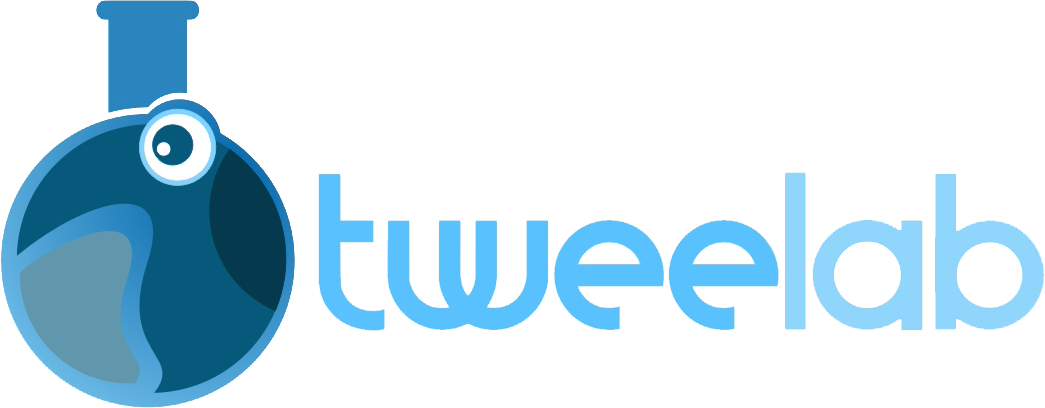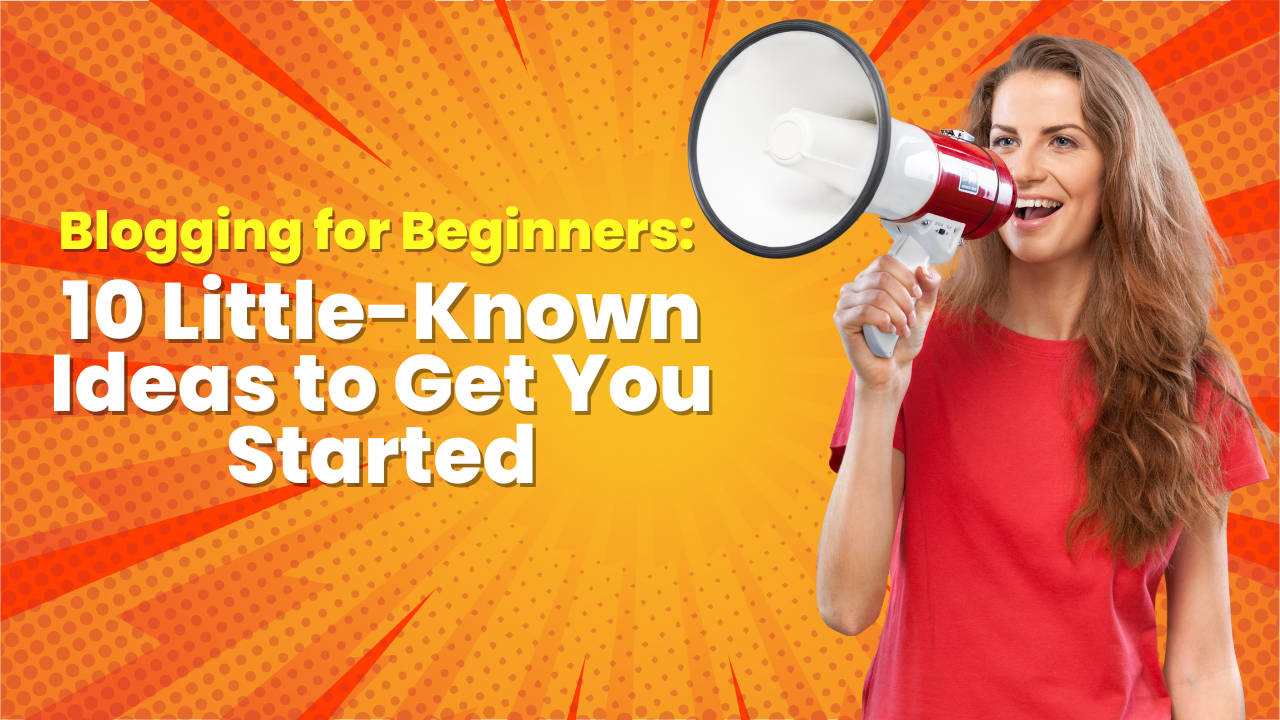Blogging is dead. At least, that’s what 47% of aspiring writers believe before they start their blogging journey.
I remember staring at my blank computer screen, cursor blinking mockingly, as I attempted to write my first blog post. The overwhelming feeling of inadequacy and the fear of putting my thoughts out into the vast digital void paralyzed me. Sound familiar?
Many aspiring bloggers struggle with getting started, unsure of where to begin or how to stand out in an oversaturated online landscape.
The longer you wait, the more daunting the task becomes. Your unique voice remains unheard, and potential opportunities slip away with each passing day.
Fear not! This comprehensive guide will equip you with 10 little-known ideas to kickstart your blogging journey, helping you overcome common hurdles and set yourself up for success from day one.
The Blogging Landscape – An Overview
Blogging, at its core, is the act of regularly publishing written content on a website, typically in a conversational or informal style. The term “blog” is a truncation of “weblog,” coined by Jorn Barger in 1997. Since then, blogging has evolved from simple online diaries to a powerful medium for sharing information, building communities, and even generating income.

The significance of blogging in today’s digital age cannot be overstated. Here’s why:
- Digital Presence: Blogs provide individuals and businesses with a platform to establish their online presence and showcase their expertise.
- Content Marketing: For businesses, blogs serve as a cornerstone of content marketing strategies, driving traffic and generating leads.
- Personal Branding: Bloggers can build a personal brand, positioning themselves as thought leaders in their niche.
- Community Building: Blogs foster engaged communities around shared interests or causes.
- Monetization Opportunities: Successful blogs can generate income through various channels, including advertising, sponsored content, and affiliate marketing.
According to a recent study by OptinMonster, blogs are considered the 5th most trustworthy source of information online. This statistic underscores the importance and potential impact of starting a blog, even in today’s crowded digital landscape.
Latest Trends and Developments in Blogging

The blogging world is constantly evolving, with new trends emerging regularly. Here are some of the latest developments that aspiring bloggers should be aware of:
- Video Integration: While written content remains king, incorporating video elements into blog posts has become increasingly popular. This trend caters to diverse learning styles and increases engagement.
- Voice Search Optimization: With the rise of voice-activated devices, optimizing blog content for voice search has become crucial. This involves using more conversational language and answering specific questions.
- AI-Powered Content Creation: Tools like GPT-3 are being used to assist in content creation, from generating ideas to drafting entire posts. However, human touch and expertise remain invaluable.
- Niche Blogging: Rather than trying to appeal to everyone, successful bloggers are focusing on specific niches, becoming go-to resources for particular topics.
- Interactive Content: Quizzes, polls, and interactive infographics are being integrated into blog posts to boost engagement and provide value to readers.
- Sustainability and Social Responsibility: Blogs that address environmental and social issues are gaining traction, reflecting growing consumer interest in these topics.
- Mobile-First Approach: With over 50% of global web traffic coming from mobile devices, designing blogs with a mobile-first approach has become essential.
- Increased Focus on E-A-T: Google’s emphasis on Expertise, Authoritativeness, and Trustworthiness (E-A-T) has led bloggers to prioritize credibility and quality in their content.
Frequently Asked Questions About Blogging for Beginners

1. Do I need technical skills to start a blog?
Not necessarily. While some technical knowledge can be helpful, many user-friendly platforms like WordPress, Wix, and Squarespace allow you to set up a blog with minimal technical expertise.
2. How often should I publish new content?
Consistency is more important than frequency. Start with a realistic schedule, such as once a week, and adjust as you become more comfortable with the process.
3. How long should my blog posts be?
It depends on your topic and audience. Generally, posts between 1,500 to 2,500 words perform well in search engines. However, quality always trumps quantity.
4. Can I really make money from blogging?
Yes, but it takes time and effort. Successful bloggers often diversify their income streams through advertising, affiliate marketing, sponsored content, digital products, and services.
5. How do I come up with ideas for blog posts?
Draw inspiration from your personal experiences, industry news, reader questions, and keyword research. Tools like Answer the Public and BuzzSumo can also help generate ideas.
10 Little-Known Ideas to Get You Started in Blogging

- Start with a “Pillar Post”
Benefit: Establish your expertise and create a foundation for future content.
Instead of diving into random topics, begin with a comprehensive “pillar post” that covers the core aspects of your niche. This in-depth article will serve as a reference point for both you and your readers, showcasing your knowledge and providing a roadmap for future content. - Leverage the “Skyscraper Technique”
Benefit: Create superior content that outperforms competitors and attracts backlinks.
Identify popular content in your niche using tools like Ahrefs or SEMrush. Then, create a more comprehensive, up-to-date, and visually appealing version of that content. Reach out to sites linking to the original content and introduce them to your improved version. - Implement a “Content Upgrade” Strategy
Benefit: Build your email list while providing extra value to readers.
Create niche-specific, downloadable resources (checklists, templates, eBooks) that complement your blog posts. Offer these as “content upgrades” in exchange for email addresses, boosting your list-building efforts. - Utilize the “Inverted Pyramid” Writing Style
Benefit: Improve readability and engagement, especially for mobile users.
Start your posts with the most important information (the “what”), followed by supporting details (the “how” and “why”). This journalism-inspired technique hooks readers quickly and caters to shorter attention spans. - Create a “Blog Alliance” with Fellow Beginners
Benefit: Expand your network and cross-promote content.
Connect with other novice bloggers in complementary niches. Form a small group (3-5 members) to share each other’s content, provide feedback, and potentially collaborate on projects. - Implement a “30-Day Visibility Challenge”
Benefit: Boost your blog’s exposure and overcome the fear of self-promotion.
For 30 days, commit to promoting your blog daily through various channels (social media, forums, comments on other blogs). This challenge will help you develop a promotion habit and increase your blog’s visibility. - Develop a “Signature Framework”
Benefit: Differentiate yourself and provide unique value to your audience.
Create a proprietary framework or process related to your niche. For example, if you’re blogging about productivity, develop a unique 5-step system for task management. This framework becomes your “signature” approach, setting you apart from other bloggers. - Utilize the “AIDA” Formula in Your Posts
Benefit: Create more compelling and persuasive content.
Structure your posts using the AIDA formula: Attention (grab the reader’s interest), Interest (build curiosity), Desire (create a want for your solution), and Action (prompt the reader to take the next step). This copywriting technique can significantly improve your content’s effectiveness. - Implement a “Blog Post Remix” Strategy
Benefit: Maximize the value of your content and cater to different learning styles.
Take your best-performing blog posts and “remix” them into different formats. Turn a how-to post into an infographic, create a video tutorial based on a listicle, or transform a series of related posts into a downloadable eBook. - Create a “Reader Avatar”
Benefit: Produce more targeted and relevant content.
Develop a detailed persona representing your ideal reader. Include demographics, interests, pain points, and goals. Refer to this avatar when creating content to ensure you’re always addressing your target audience’s needs and preferences.

Embarking on your blogging journey doesn’t have to be a daunting task. By implementing these 10 little-known ideas, you’re not just starting a blog – you’re laying the foundation for a powerful online presence that can inform, inspire, and potentially even generate income.
Remember, the key to successful blogging lies in consistency, authenticity, and a willingness to learn and adapt. Don’t be afraid to experiment with different strategies and find what works best for you and your audience.
As you begin this exciting journey, keep in mind that every successful blogger started exactly where you are now. The difference between those who succeed and those who don’t often comes down to persistence and a willingness to take that first step.
So, what are you waiting for? It’s time to turn that blinking cursor into captivating content that resonates with your audience. Start implementing these strategies today, and watch as your blog transforms from a blank page into a thriving digital hub.
Your unique voice deserves to be heard. The blogging world is waiting for your contribution. Take action now – your future readers will thank you.

